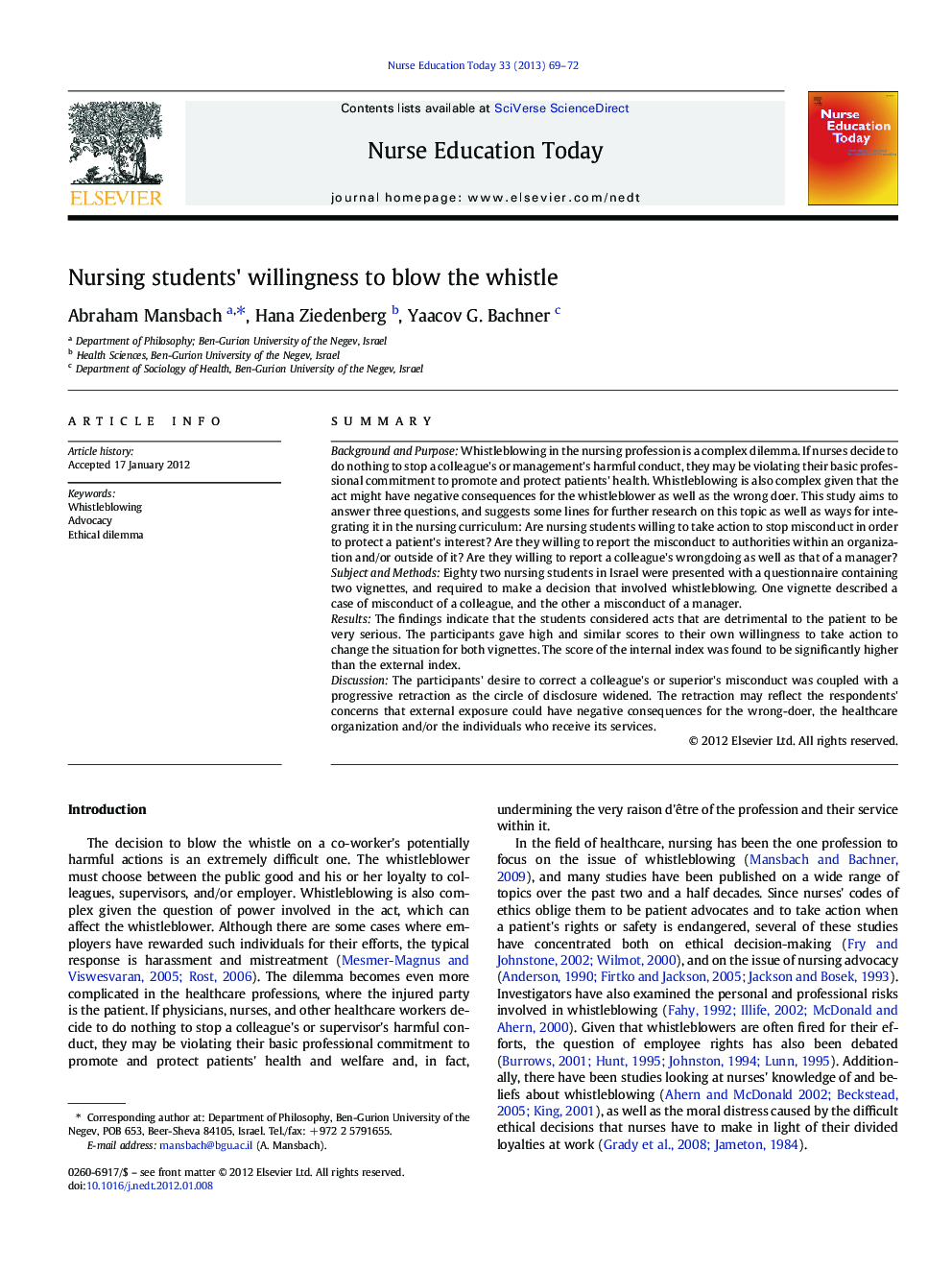| کد مقاله | کد نشریه | سال انتشار | مقاله انگلیسی | نسخه تمام متن |
|---|---|---|---|---|
| 368909 | 621600 | 2013 | 4 صفحه PDF | دانلود رایگان |

SUMMARYBackground and PurposeWhistleblowing in the nursing profession is a complex dilemma. If nurses decide to do nothing to stop a colleague's or management's harmful conduct, they may be violating their basic professional commitment to promote and protect patients' health. Whistleblowing is also complex given that the act might have negative consequences for the whistleblower as well as the wrong doer. This study aims to answer three questions, and suggests some lines for further research on this topic as well as ways for integrating it in the nursing curriculum: Are nursing students willing to take action to stop misconduct in order to protect a patient's interest? Are they willing to report the misconduct to authorities within an organization and/or outside of it? Are they willing to report a colleague's wrongdoing as well as that of a manager?Subject and MethodsEighty two nursing students in Israel were presented with a questionnaire containing two vignettes, and required to make a decision that involved whistleblowing. One vignette described a case of misconduct of a colleague, and the other a misconduct of a manager.ResultsThe findings indicate that the students considered acts that are detrimental to the patient to be very serious. The participants gave high and similar scores to their own willingness to take action to change the situation for both vignettes. The score of the internal index was found to be significantly higher than the external index.DiscussionThe participants' desire to correct a colleague's or superior's misconduct was coupled with a progressive retraction as the circle of disclosure widened. The retraction may reflect the respondents' concerns that external exposure could have negative consequences for the wrong-doer, the healthcare organization and/or the individuals who receive its services.
Journal: Nurse Education Today - Volume 33, Issue 1, January 2013, Pages 69–72